What is acne?
Acne itself is a skin condition where the growth of oil glands in the skin is triggered, meaning the skin produces more sebum than usual. Sebum is oily and mixes with dead skin cells and may then block skin pores causing spots and in more severe cases, cysts and inflammation.
Acne is most commonly found on the face, back and chest and, particularly where it appears on skin that is usually visible to others, it can mean we feel less confident and impact both our social lives and our mental health. Acne may also lead to scarring, where the skin is damaged by spots or cysts that leave noticeable marks even after the acne has healed.
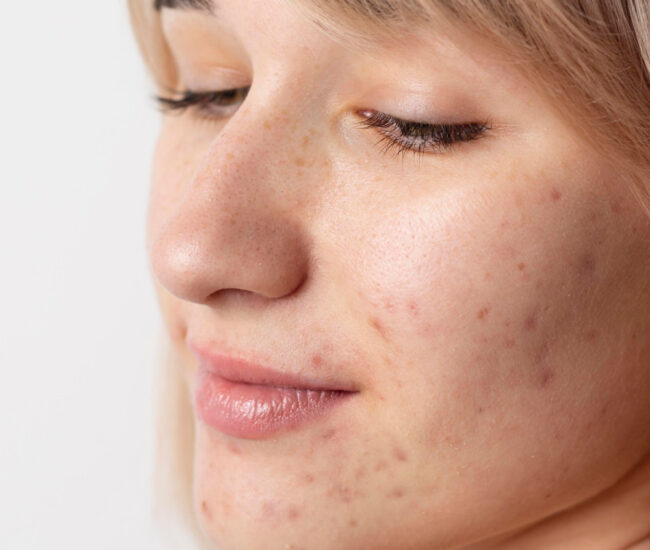
What causes acne
Acne is especially common during puberty, but it can and does occur at any point in our lives. Many people feel ashamed of having acne, but it is generally caused by things that are outside our control.
Acne is thought to have genetic causes, which means if others in your family have acne you are more likely to experience it. Another key factor is changing levels of the hormone testosterone in your body, which can increase sebum production.
Acne scarring occurs when collagen formation is disrupted by inflammation and damage to the skin. The most common form of acne scarring, atrophic scarring, is where collagen fibres are destroyed, leaving depressions in the skin. The main types of atrophic scarring are ice-pick scars, rolling scars and boxcar scars. Hypertrophic or keloid-type scars are where collagen production increases, creating a growth of skin in a formation that may be flat, slightly raised or significantly raised.
Scarring is more likely to occur with larger skin blemishes, like cysts and nodules, which damage the surrounding skin if they burst. Squeezing any kind of spot, including smaller ones, is also likely to cause scarring as it damages the skin far more than the spot does by itself.
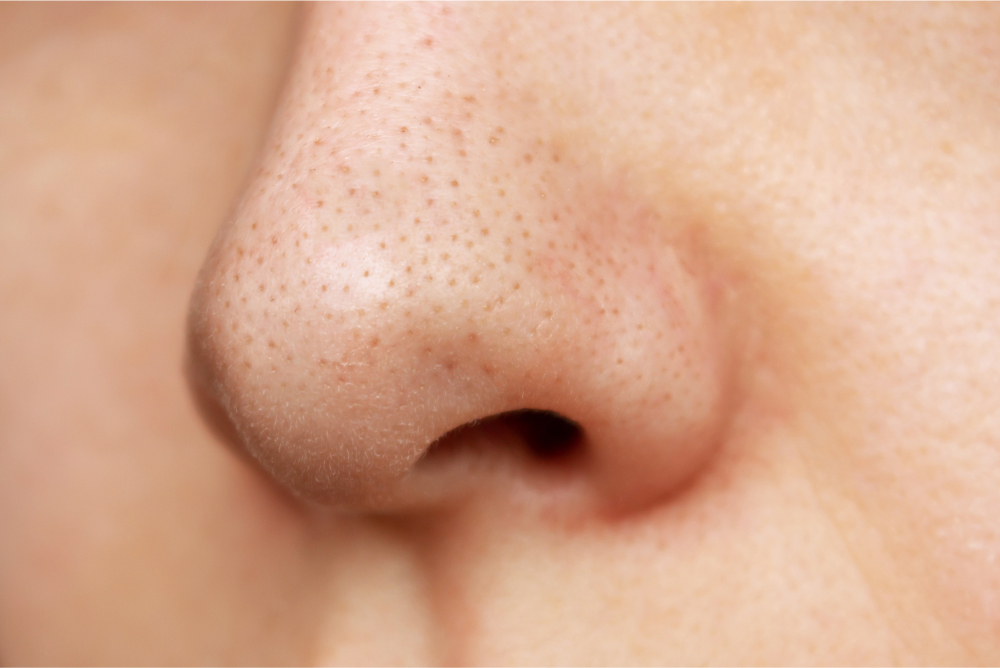
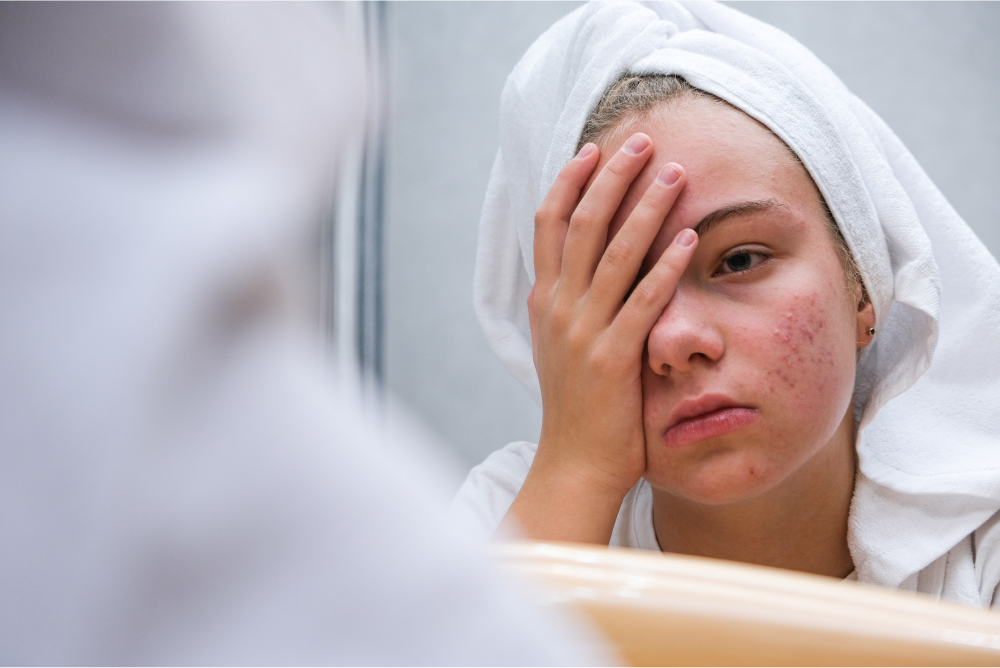
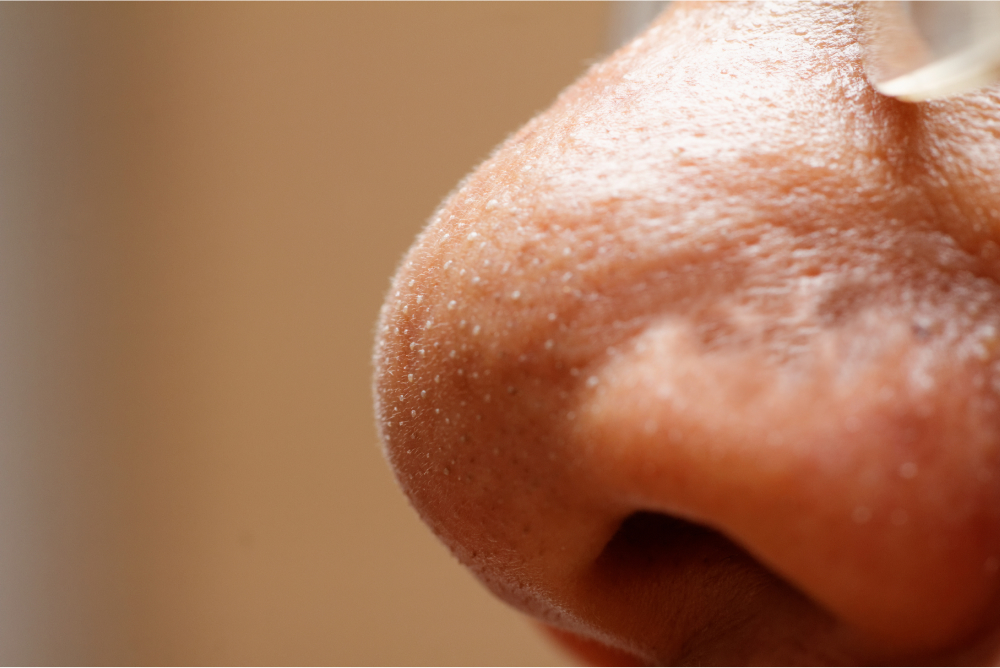
How to get rid of acne
It is possible to remove both acne itself and remove or reduce scarring that has been left behind. At Hannah London, we offer a gentle approach to healing your skin. It’s never too late to reclaim your skin and the confidence you deserve.
Treatments for acne and acne scarring
There are many treatment options to remove or reduce acne and acne scarring. The best results are obtained by combining the right treatments, in the right way for each individual. The aim of treatment is to smooth and calm the skin, while restructuring scar tissue, stimulating collagen production and (where necessary) replacing the lost volume of scar tissue.
Treatments for acne scarring
There are many treatment options to remove or reduce acne scarring and best results are obtained by combining the right treatments, in the right way for each individual. The aim of treatment is to support the skin to restructure scar tissue, stimulate collagen production and (where necessary) replace the lost volume of scar tissue.
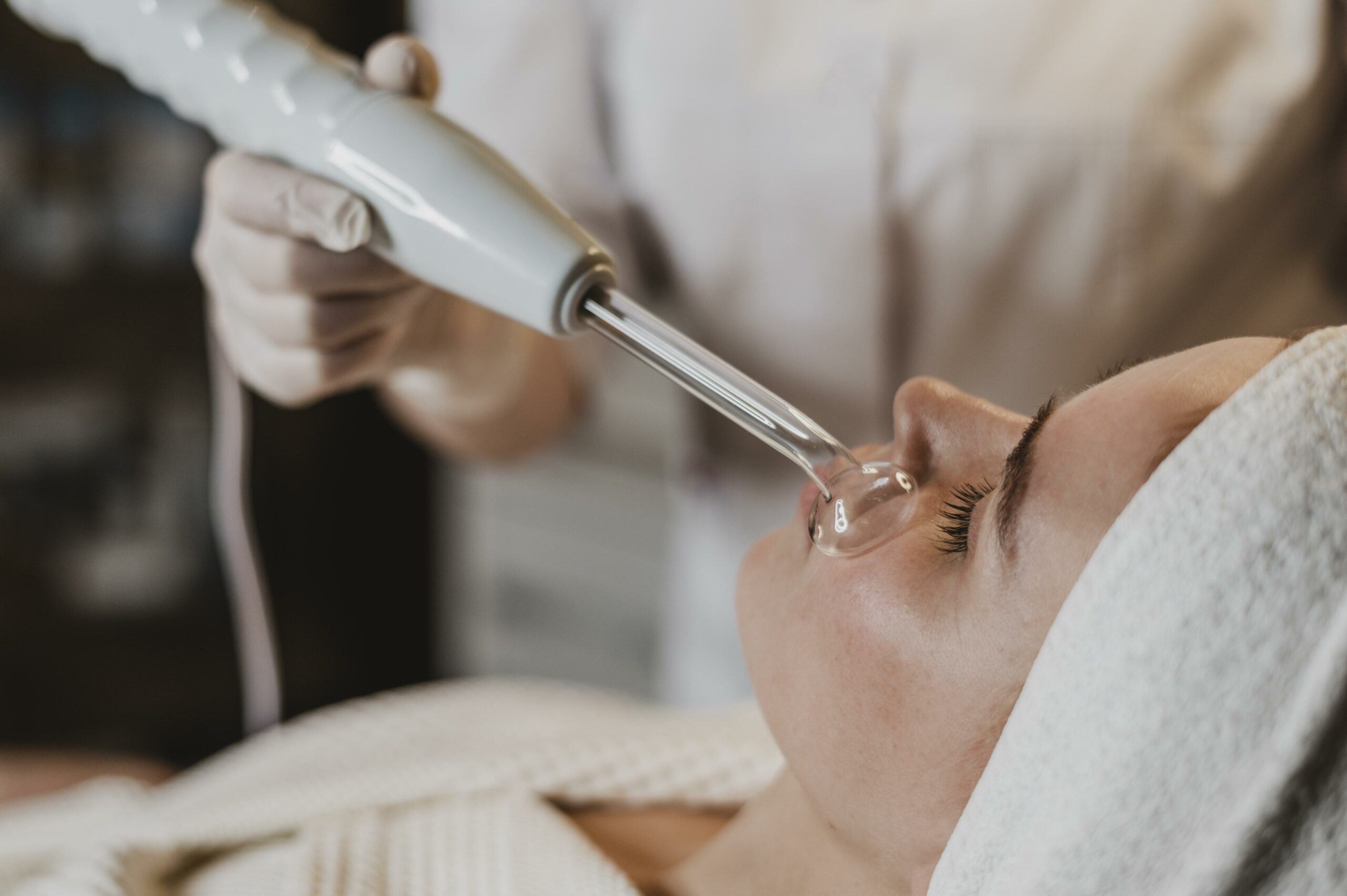
Newer treatments include:
Polynucleotides (also called biofillers or biostimulators), which are like a kind of food or medicine for your cells. They are injected and stimulate collagen and elastin production in skin cells.
Find out more about polynucleotides for acne scarring.
Exsomes, which are used in conjunction with IPL laser therapy (more information on that below), to support our skin’s natural repair process.
Find out more about exsomes for acne scarring.
Other treatments include:
Acne medications, often combined with other acne treatments, to reduce the appearance of active acne. Typical medications include Benzoyl peroxide (topical), Medical retinols (topical), Lymecycline (antibiotics), Minocycline (antibiotics), and Roaccutane (offered when acne has not responded to other treatments).
Find out more about medication for acne
Chemical peels, a professional application of acid to remove layers of the skin both to clear acne and to reduce scarring. Treatments like Blue Peel Radiance by Obagi and BlemiDerm by mesoestetic are specifically formulated to improve acne.
Find out more about chemical peels for acne and acne scarring
Microneedling uses surgical needles to create microscopic injuries to the skin, which promotes collagen formation, scar healing and an overall smoothing of your skin texture.
Find out more about microneedling for acne and acne scarring.
Microneedling uses surgical needles to create microscopic injuries to the skin, which promotes collagen formation and healing of scars.
Find out more about microneedling for acne scarring.
Potenza, a form of microneedling which is applied in combination with radiofrequency treatments. These use radiowaves (or longwaves) to go deeper into the skin and encourage rejuvenation to heal acne spots, prevent scarring, and reduce sebum production.
Find out more about Potenza for acne and acne scarring
IPL (Intense Pulsed Light), a laser therapy using light energy to destroy sebum forming glands to reduce the trigger of acne (unlike microneedling), and break down acne scar tissue.
Find out more about IPL for acne and acne scarring.
Subcision involves inserting a small needle into the skin to release the acne scar from the underlying skin tissue, which allows sunken scars to rise and also stimulates healing.
Find out more about subcision for acne scarring.
TCA cross uses trichloroacetic acid (TCA) in a chemical reconstruction of skin scars (CROSS). The acid stimulates the creation of new collagen fibres and reduces the appearance of scars.
Find out more about TCA cross for acne scarring.
Intra-lesional steroid injections may be used for nodular/cystic acne, following consultation with an experienced practitioner.
Find out more about intra-lesional steroid injection for acne.
At-home Self Care Treatments
At Hannah London, our practitioners will offer advice on things you can do for yourself, at home, to improve acne and the resulting scarring and support in-clinic treatments. For example:
-
Further Reading
Information from the NHS about acne
Information on acne from The British Skin Foundation
“Your body image accounts for about one-quarter to one-third of your self-esteem” from ‘The emotional impact of skin problems,’ published by Psychology Toda
Meet one of our doctors for a consultation to discuss your treatment options
Welcome to
Hannah London
We’re a team of aesthetic and medical specialists lead by Dr Kaywaan Khan. We provide award-winning facial, body and hair treatments to clients across London.
Our ethos is to offer cutting-edge treatments in a luxurious setting, ensuring that you leave our clinic feeling pampered and looking fabulous.

